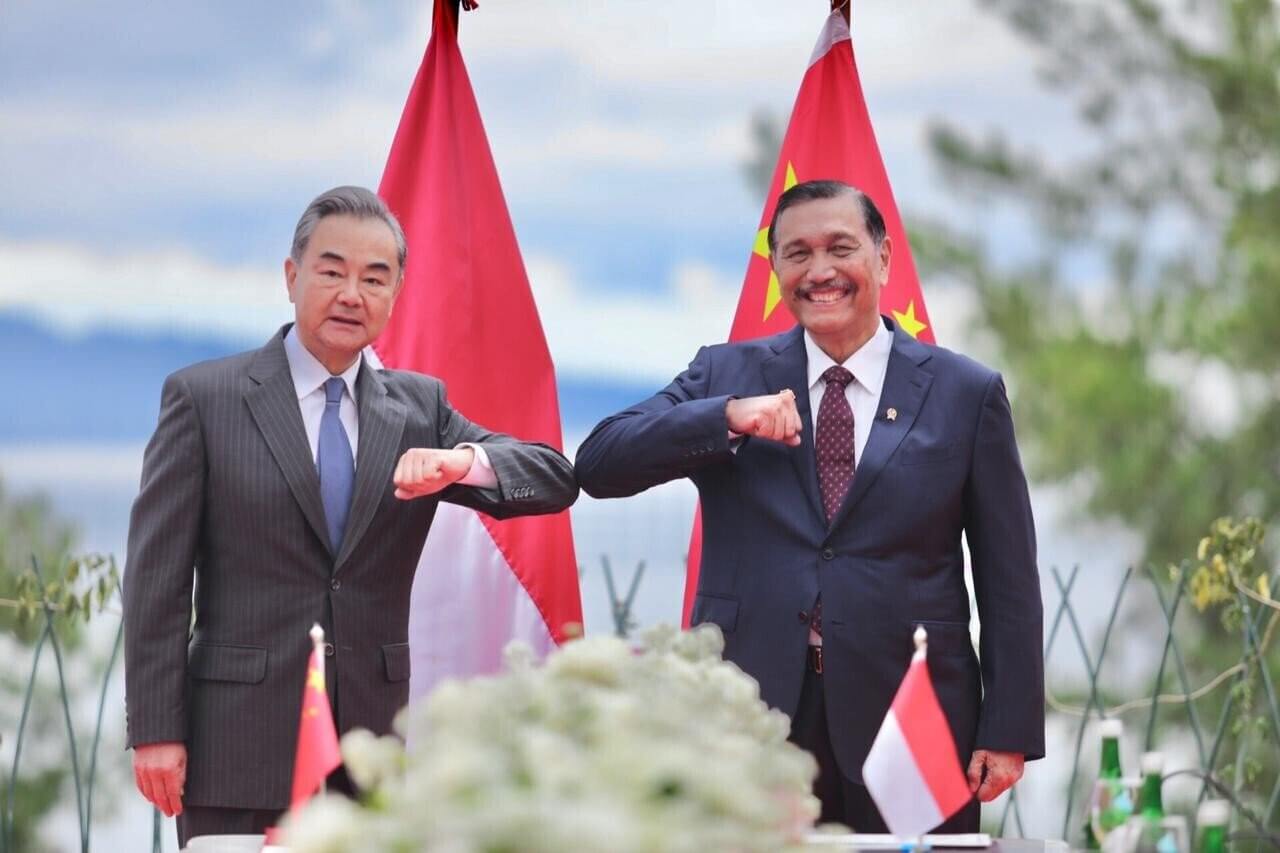On Tuesday, Chinese Foreign Minister (FM) Wang Yi met with Indonesia’s Coordinator for Cooperation with China and Coordinating Minister, Luhut Binsar Pandjaitan, to discuss medical cooperation and digital security. Additionally, the two also reached a Five-Point Consensus that aimed to “solidify strategic trust, and focus on anti-epidemic and development cooperation”.
The Five-Point Consensus was signed only a day after President Xi Jinping offered his condolence to Indonesia in the wake of the Sriwijaya Air jet plane crash that killed 189 people on January 9. In his message, Xi said that he “is shocked to learn about the crash”. He also added that “on behalf of the Chinese government and people”, he expressed “deep condolences over the victims and extend sincere sympathies to the bereaved families”.
Through the consensus, China and Indonesia have agreed to cooperate on several issues of mutual interest:
First, the two countries will cooperate “to win this long battle against COVID”. Further, they intend to build “successful Phase III clinical trials”, cooperate on vaccine research, its procurement and production, and also support Indonesia’s “efforts to become a regional centre for vaccine production”.
Second, the two will balance the “development of bilateral trade” by increasing “imports from Indonesia as well as Chinese investment in Indonesia”. This includes aligning China’s Belt and Road Initiative (BRI) with the Indonesian government’s vision for the Global Maritime Fulcrum and its desire to “strive for substantive progress in major projects”, including the Jakarta-Bandung high-speed railway, the Regional Comprehensive Economic Corridor, and the “Two Countries, Twin Parks” initiative. The allies will also “harness technological innovation to nurture new growth drivers in 5G, artificial intelligence, big data and other sectors to boost [their] industrial competitiveness”.
Third, the countries “will take the 30th anniversary of China-ASEAN dialogue relations as an opportunity to substantiate” their relationship and elevate it to “a new historic height”. They will also collaborate for speeding up the mechanisms of China’s Regional Comprehensive Economic Partnership (RCEP), which aims “to unleash the benefits of the world’s largest free trade area”. The RCEP was signed in November 2020 between China, which has long championed the cause of multilateral cooperation and free trade, and 14 other nations, excluding the United States, with the hope of revitalizing the world economy and aid in its recovery in the aftermath of the COVID pandemic. It establishes the world’s largest free-trade bloc and aims to boost the global GDP by $186 billion a year.
Fourth, they have also agreed to “jointly work out regional rules that are effective, substantive and consistent with international law, and jointly maintain peace and stability in the South China Sea” by working in collaboration with other ASEAN members “to promote the full and effective implementation” of the Declaration of Conduct of Parties (DOC).
Lastly, China promised to “give full support” to Indonesia when it hosts the G20 summit in 2022. They agreed to “work together to reform and improve global governance and cooperation, uphold multilateralism and free trade,” and make their “due contribution to world peace, stability and development in the post-COVID era”.
The meeting brief, released by the Foreign Ministry of China, also said that Wang appreciated that their bilateral relationship has “stood the test of the pandemic” and that the two “will stay closely united to usher in a brighter future for the bilateral relations and give greater confidence and strength to the region and beyond.” It also added that Indonesia “sincerely hopes to further advance sound and sustainable important cooperation with China”.
While China and Indonesia cooperate in most areas in pursuance of their economic relationship, they do face some hiccups in the South China Sea. Due to the surge in illegal finishing activities by Chinese boats, Jakarta has been forced to deploy fighter jets and additional naval vessels to patrol the region. Jakarta has also been known to take a notably firm stance against Chinese territorial claims, unlike the Philippines and Brunei. In fact, last year, Defence Minister Prabowo Subianto indicated Indonesia’s plans to build new military bases around the disputed islands of Natuna to check China’s activities.
Tuesday’s visit was a part of Yi’s Southeast Asia tour, during which Yi will also visit Brunei and the Philippines. Brunei’s Sultan Haji Hassanal Bolkiah met with Wang earlier today and both countries “pledged to carry on joint fight against the COVID-19 pandemic” and also “promote bilateral cooperation in all areas to new high”.

